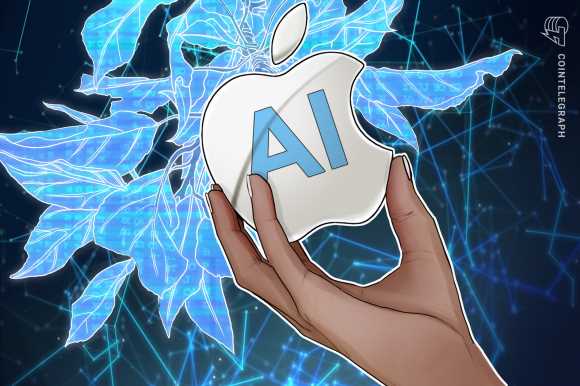Apple’s reportedly working on its own generative pre-trained transformer (GPT) artificial intelligence (AI) model. However, there’s no indication that the company has any plans to launch it to the public.
Per a July 19 report from Bloomberg, Apple’s internal GPT system is called “Ajax.” It’s purportedly similar to OpenAI’s ChatGPT and Google’s Bard.
Apple has a longstanding reputation for developing its products inside of a walled garden. While “Ajax,” which Bloomberg reports some engineers have referred to as “Apple GPT,” could eventually turn into a consumer-facing product, its current infrastructure could pose a problem.
Apple codenamed its GPT system “Ajax” because it was developed on top of Google Jax, a machine learning framework. It’s also reportedly running on Google Cloud, which could limit Apple’s ability to affordably scale Ajax beyond internal testing.
Google’s Bard AI system is one of the primary competitors in the consumer-facing generative AI technology space, facing direct opposition from Microsoft and OpenAI in the form of BingAI and ChatGPT. However, Apple has so far not indicated it intends to compete in this arena.
Related: Meta and Microsoft launch open-source AI model Llama 2
Apple’s track record concerning AI demonstrates that the company is privacy-focused when it concerns machine learning technology. For this reason, most of its efforts are focused on AI technologies that can be run using onboard processors instead of cloud-based services.
Chatbot technology, such as ChatGPT, typically requires internet connectivity to work. While it’s possible to run a chatbot on discrete architecture, such as the AI chip on an iPhone, the model size and capabilities are constrained by the device’s hardware.
However, if Apple were to develop a comparatively useful GPT model capable of running discretely on iPhone hardware, that could be a boon to users who value privacy over the conversational features embedded in the larger cloud-based models. Consumers who require privacy as a default would stand to benefit the most.
This could also solve or mitigate some of the outstanding problems with GPT-based chatbots. Cryptocurrency trading bots built on GPT tech, for example, currently suffer from hallucinations. In the technical sense, this means that sometimes they make things up when they can’t come up with a factual answer.
A pretrained chatbot capable of referencing user-tuned data sets and running discretely on an iPhone could eliminate noisy data for trading bots and keep users’ financial data — such as wallet keys, personally identifiable information and transaction records — completely private.
Despite Apple’s lack of impact in the chatbot space, the Cupertino, California-based company is one of the most impactful players in AI. The AI powering the iPhone’s camera and photography editing suite remains cutting edge, and Apple Research outputs a steady stream of significant papers in the machine learning space.
A veritable “who’s who” of AI luminaries and renowned experts have also recently filtered through the company’s secretive AI labs, including the “GANfather,” Ian Goodfellow, who recently left the company to join Google DeepMind, and its current head of AI, John Giannandrea, who previously led Search at Google.
Source: Read Full Article
-
Grayscale’s GBTC Discount Hits 2-Year Low: ETF Approval Incoming? – Coinpedia Fintech News
-
Absorb for adoption — How infamous 30% Apple cut affects iOS NFT apps
-
Binance Coin Resumes a Sideways Move but Challenges the $300 High
-
Oregon Tells Residents to Avoid Crypto Investments
-
Bitcoin Network Difficulty Falls While Lightning Network Expands

